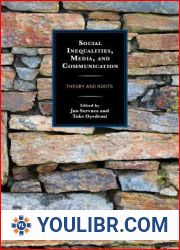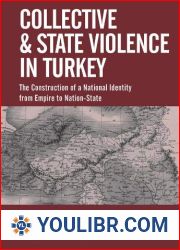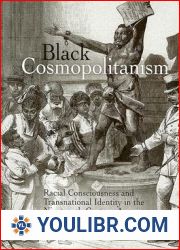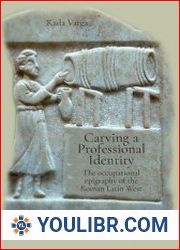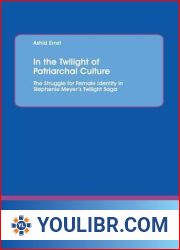
BOOKS - Moral Gray Zones: Side Productions, Identity, and Regulation in an Aeronautic...

Moral Gray Zones: Side Productions, Identity, and Regulation in an Aeronautic Plant
Author: Michel Anteby
Year: January 1, 2008
Format: PDF
File size: PDF 988 KB
Language: English

Year: January 1, 2008
Format: PDF
File size: PDF 988 KB
Language: English

Moral Gray Zones: Side Productions, Identity, and Regulation in an Aeronautic Plant In his thought-provoking book, "Moral Gray Zones Michel Anteby delves into the intricacies of workplace regulations and their impact on employee behavior, highlighting the existence of "gray zones" within organizations. These gray zones refer to unofficial yet tolerated practices that employees engage in, often without management's knowledge or approval. The book focuses on the manufacture and exchange of illegal goods, known as "homers within an aeronautic plant in France, providing a unique window into the inner workings of these spaces. Anteby's research encompasses observations at retirees' homes, archival data, interviews, and surveys to comprehend how workers and managers perceive and justify these tacit practices. He argues that gray zones serve as regulatory mechanisms within workplaces, offering balanced opportunities for both supervision and expression. However, he cautions against hasty judgments regarding the morality of these practices, emphasizing the need for a deeper understanding of their underlying dynamics and significance. The book explores how gray zones shape workers' identities and self-esteem, allowing management to maintain control while fostering a sense of autonomy among employees.
Moral Grey Zones: de Productions, Identity, and Regulation in an Aeronautic Plant В своей книге «Moral Grey Zones» Мишель Антеби углубляется в тонкости правил на рабочем месте и их влияние на поведение сотрудников, подчеркивая существование «серых зон» в организациях. Эти серые зоны относятся к неофициальным, но терпимым практикам, которыми занимаются сотрудники, часто без ведома или одобрения руководства. Книга посвящена производству и обмену нелегальных товаров, известных как «хозяева» на воздухоплавательном заводе во Франции, предоставляя уникальное окно во внутреннюю работу этих пространств. Исследование Anteby включает в себя наблюдения в домах пенсионеров, архивные данные, интервью и опросы, чтобы понять, как работники и менеджеры воспринимают и оправдывают эти негласные практики. Он утверждает, что серые зоны служат механизмами регулирования на рабочих местах, предлагая сбалансированные возможности как для надзора, так и для выражения. Тем не менее, он предостерегает от поспешных суждений относительно морали этих практик, подчеркивая необходимость более глубокого понимания их основополагающей динамики и значимости. В книге рассказывается о том, как серые зоны формируют личность и самооценку работников, позволяя руководству сохранять контроль, одновременно воспитывая чувство автономии среди сотрудников.
Moral Grey Zones : de Productions, Identity, and Regulation in an Aeronautic Plant Dans son livre « Moral Grey Zones », Michel Antebi explore la subtilité des règles sur le lieu de travail et leur impact sur le comportement des employés en soulignant l'existence de « zones grises » dans les organisations. Ces zones d'ombre font référence à des pratiques informelles mais tolérantes dont s'occupent les employés, souvent à l'insu ou sans l'approbation de la direction. livre traite de la production et de l'échange de marchandises illégales appelées « maîtres » dans une usine aéronautique en France, offrant une fenêtre unique sur le fonctionnement intérieur de ces espaces. L'étude d'Anteby comprend des observations dans les maisons de retraite, des données archivées, des entrevues et des sondages pour comprendre comment les travailleurs et les gestionnaires perçoivent et justifient ces pratiques tacites. Il affirme que les zones d'ombre servent de mécanismes de réglementation sur le lieu de travail, offrant des possibilités équilibrées de surveillance et d'expression. Cependant, il met en garde contre les jugements hâtifs sur la moralité de ces pratiques, soulignant la nécessité de mieux comprendre leur dynamique et leur signification sous-jacentes. livre décrit comment les zones d'ombre façonnent la personnalité et l'estime de soi des travailleurs, permettant à la direction de garder le contrôle tout en développant un sentiment d'autonomie parmi les employés.
Moral Grey Zones: de Producciones, Identidad, y Regulación en una Planta Aeronáutica En su libro «Moral Grey Zones», Michelle Anteby profundiza en la sutileza de las reglas en el lugar de trabajo y su impacto en el comportamiento de los empleados, destacando la existencia de «zonas grises» en las organizaciones. Estas zonas grises se refieren a prácticas no oficiales pero tolerantes que manejan los empleados, a menudo sin el conocimiento o la aprobación de la administración. libro trata sobre la producción e intercambio de bienes ilegales conocidos como «anfitriones» en una planta aeronáutica en Francia, proporcionando una ventana única al funcionamiento interior de estos espacios. estudio de Anteby incluye observaciones en los hogares de los jubilados, datos de archivo, entrevistas y encuestas para entender cómo los trabajadores y directivos perciben y justifican estas prácticas tácitas. Sostiene que las zonas grises sirven como mecanismos de regulación en los centros de trabajo, ofreciendo oportunidades equilibradas tanto para la supervisión como para la expresión. n embargo, advierte contra juicios apresurados sobre la moralidad de estas prácticas, subrayando la necesidad de una comprensión más profunda de su dinámica y significación subyacentes. libro narra cómo las zonas grises forman la personalidad y la autoestima de los trabajadores, lo que permite a la dirección mantener el control, al tiempo que fomenta un sentido de autonomía entre los empleados.
Moral Grey Zonas: de Produções, Identity, e Regulação in an Aeronautic Plant Em seu livro «Moral Grey Zonas», Michelle Anteby aprofundou-se na finitude das regras no local de trabalho e seu impacto no comportamento dos funcionários, enfatizando a existência de «zonas cinzentas» nas organizações. Estas zonas cinzentas pertencem a práticas não oficiais mas tolerantes, muitas vezes sem o conhecimento ou a aprovação do manual. O livro é dedicado à produção e troca de produtos ilegais conhecidos como «donos» em uma fábrica de ar em França, fornecendo uma janela única para o funcionamento interno desses espaços. O estudo da Anteby inclui observações nos lares dos aposentados, dados de arquivo, entrevistas e sondagens para entender como os trabalhadores e gerentes veem e justificam essas práticas pouco transparentes. Ele afirma que as zonas cinzentas servem como mecanismos de regulação no local de trabalho, oferecendo oportunidades equilibradas de supervisão e expressão. No entanto, ele adverte contra julgamentos apressados sobre a moralidade dessas práticas, ressaltando a necessidade de compreender melhor a sua dinâmica e importância fundamentais. O livro descreve como as zonas cinzentas formam a personalidade e a autoestima dos trabalhadores, permitindo que os líderes mantenham o controle ao mesmo tempo que educam o sentimento de autonomia entre os funcionários.
Moral Grey Zone: de Productions, Identity, and Regolation in an Aeronautic Plant Nel suo libro, «Moral Grey Zone», Michelle Antebi approfondisce la finezza delle regole sul posto di lavoro e il loro impatto sul comportamento dei dipendenti, sottolineando l'esistenza di «zone grigie» nelle organizzazioni. Queste aree grigie appartengono a pratiche non ufficiali ma tolleranti, che vengono gestite dai dipendenti, spesso all'insaputa o all'approvazione della direzione. Il libro è dedicato alla produzione e allo scambio di beni illegali noti come «proprietari» in una fabbrica d'aria in Francia, fornendo una finestra unica sul funzionamento interno di questi spazi. Lo studio Anteby include osservazioni nelle case dei pensionati, dati archiviati, interviste e sondaggi per capire come i lavoratori e i manager percepiscono e giustificano queste pratiche silenziose. Sostiene che le zone grigie fungono da meccanismi di regolamentazione nei luoghi di lavoro, offrendo un equilibrio di opportunità sia di supervisione che di espressione. Tuttavia, mette in guardia contro un giudizio affrettato sulla moralità di queste pratiche, sottolineando la necessità di comprendere meglio le loro dinamiche fondamentali e la loro importanza. Il libro descrive il modo in cui le aree grigie formano la personalità e l'autostima dei lavoratori, permettendo ai dirigenti di mantenere il controllo, mentre educano il senso di autonomia tra i dipendenti.
Moral Grey Zones: de Productions, Identity, and Regulation in an Aeronautic Plant Michel Anteby geht in seinem Buch „Moral Grey Zones“ auf die Feinheiten von Regeln am Arbeitsplatz und deren Auswirkungen auf das Verhalten von Mitarbeitern ein und betont die Existenz von „Grauzonen“ in Organisationen. Diese Grauzonen beziehen sich auf inoffizielle, aber tolerante Praktiken, die von Mitarbeitern durchgeführt werden, oft ohne Wissen oder Zustimmung des Managements. Das Buch konzentriert sich auf die Produktion und den Austausch illegaler Waren, die als „Gastgeber“ in einer Luftfahrtfabrik in Frankreich bekannt sind, und bietet ein einzigartiges Fenster in das Innenleben dieser Räume. Antebys Forschung umfasst Beobachtungen in Altersheimen, Archivdaten, Interviews und Umfragen, um zu verstehen, wie Arbeiter und Manager diese unausgesprochenen Praktiken wahrnehmen und rechtfertigen. Er argumentiert, dass Grauzonen als Regulierungsmechanismen am Arbeitsplatz dienen und ausgewogene Möglichkeiten sowohl für die Aufsicht als auch für den Ausdruck bieten. Er warnt jedoch vor voreiligen Urteilen über die Moral dieser Praktiken und betont die Notwendigkeit eines tieferen Verständnisses ihrer zugrunde liegenden Dynamik und Bedeutung. Das Buch beschreibt, wie Grauzonen die Persönlichkeit und das Selbstwertgefühl der Mitarbeiter prägen, was es dem Management ermöglicht, die Kontrolle zu behalten und gleichzeitig ein Gefühl der Autonomie unter den Mitarbeitern zu fördern.
Moral Gray Zones: de Productions, Identity, and Regulation in an Aeronautic Plant W książce „Moral Gray Zones” Michelle Anteby zagłębia się w zawiłości zasad pracy i ich wpływ na zachowanie pracowników, podkreślając istnienie „szarych stref” w organizacje. Te szare obszary odnoszą się do nieoficjalnych, ale tolerancyjnych praktyk, w które zaangażowani są pracownicy, często bez wiedzy i zgody kierownictwa. Książka skupia się na produkcji i wymianie nielegalnych towarów znanych jako „mistrzowie” w zakładzie lotniczym we Francji, zapewniając unikalne okno do wewnętrznych prac tych przestrzeni. Badania Anteby obejmują obserwacje w domach emerytalnych, dane archiwalne, wywiady i ankiety, aby zrozumieć, jak pracownicy i menedżerowie postrzegają i uzasadniają te niewypowiedziane praktyki. Twierdzi, że szare obszary służą jako mechanizmy regulacyjne w miejscach pracy, zapewniając zrównoważone możliwości zarówno nadzoru, jak i ekspresji. Ostrzega jednak przed śpieszeniem do sądu w kwestii moralności tych praktyk, podkreślając potrzebę głębszego zrozumienia ich dynamiki i znaczenia. Książka bada, jak szare obszary kształtują osobowość i poczucie własnej wartości pracowników, umożliwiając kierownictwu utrzymanie kontroli przy jednoczesnym zachowaniu poczucia autonomii wśród pracowników.
''
Moral Gray Zones: De Productions, Identity, and Regulation in an Aeronautic Plant Michelle Anteby, "Moral Gray Zones'adlı kitabında, organizasyonlarda" gri bölgeler'in varlığını vurgulayarak, işyeri kurallarının inceliklerini ve çalışan davranışları üzerindeki etkilerini inceliyor. Bu gri alanlar, çalışanların genellikle yönetimin bilgisi veya onayı olmadan yaptıkları resmi olmayan ancak hoşgörülü uygulamaları ifade eder. Kitap, Fransa'daki bir havacılık tesisinde "ustalar'olarak bilinen yasadışı malların üretimi ve değişimi üzerine odaklanıyor ve bu alanların iç işleyişine benzersiz bir pencere sunuyor. Anteby'nin araştırması, işçilerin ve yöneticilerin bu söylenmemiş uygulamaları nasıl algıladıklarını ve haklı çıkardıklarını anlamak için emeklilik evlerindeki gözlemleri, arşiv verilerini, röportajları ve anketleri içerir. Gri alanların işyerlerinde düzenleyici mekanizmalar olarak hizmet ettiğini ve hem gözetim hem de ifade için dengeli fırsatlar sunduğunu savunuyor. Bununla birlikte, bu uygulamaların ahlakına ilişkin yargıya acele etmemeye dikkat çekerek, altta yatan dinamikleri ve önemi hakkında daha derin bir anlayışa duyulan ihtiyacı vurgulamaktadır. Kitap, gri alanların çalışanların kişiliğini ve benlik saygısını nasıl şekillendirdiğini araştırıyor ve çalışanlar arasında özerklik duygusunu beslerken yönetimin kontrolü sürdürmesine izin veriyor.
المناطق الرمادية الأخلاقية: الإنتاج الجانبي والهوية والتنظيم في مصنع للملاحة الجوية، تتعمق المناطق الرمادية الأخلاقية لميشيل أنتيبي في تعقيدات قواعد مكان العمل وتأثيرها على سلوك الموظفين، مما يسلط الضوء على وجود «مناطق رمادية» في المنظمات. تشير هذه المناطق الرمادية إلى ممارسات غير رسمية ولكنها متسامحة ينخرط فيها الموظفون، غالبًا دون علم الإدارة أو موافقتها. يركز الكتاب على إنتاج وتبادل السلع غير القانونية المعروفة باسم «الماجستير» في مصنع للملاحة الجوية في فرنسا، مما يوفر نافذة فريدة على الأعمال الداخلية لهذه المساحات. يتضمن بحث Anteby ملاحظات في دور التقاعد، وبيانات أرشيفية، ومقابلات واستطلاعات لفهم كيفية إدراك العمال والمديرين لهذه الممارسات غير المعلنة وتبريرها. يجادل بأن المناطق الرمادية تعمل كآليات تنظيمية في أماكن العمل، وتوفر فرصًا متوازنة لكل من الرقابة والتعبير. ومع ذلك، يحذر من التسرع في إصدار الأحكام بشأن أخلاقيات هذه الممارسات، مشددًا على الحاجة إلى فهم أعمق لديناميكياتها وأهميتها الأساسية. يستكشف الكتاب كيف تشكل المناطق الرمادية شخصية العمال واحترامهم لذاتهم، مما يسمح للإدارة بالحفاظ على السيطرة مع رعاية الشعور بالاستقلالية بين الموظفين.
Moral Gray Zones: de Productions, Identity, and Regulation in a Aeronautic Plant Michelle Antebi在她的書《Moral Gray Zones》中深入探討了工作場所規則的復雜性及其對員工行為的影響,強調了組織中「灰色地帶」的存在。這些灰色地帶是指工作人員經常不知情或未經管理層批準而從事的非官方但可以容忍的做法。該書致力於在法國一家航空工廠生產和交換被稱為「主人」的非法商品,為這些空間的內部運作提供了一個獨特的窗口。Anteby的研究包括養老金領取者的家庭觀察、檔案數據、訪談和調查,以了解工人和經理如何看待和證明這些不言而喻的做法。他認為,灰色地帶是工作場所的監管機制,為監督和表達提供了平衡的機會。但是,他警告不要對這些做法的道德進行倉促的判斷,強調需要更好地了解其基本動態和意義。該書講述了灰色地帶如何塑造工人的個性和自尊心,使管理層能夠保持控制,同時在員工中培養自主權感。








 49
49  3 TON
3 TON












